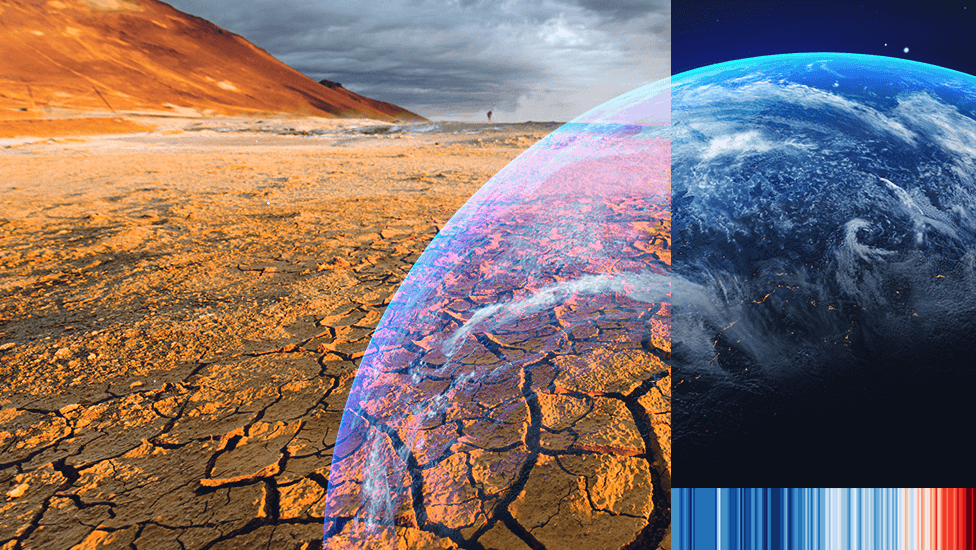
A new report released by the Intergovernmental Panel on Climate Change (IPCC) has delivered a stark warning: the world is on the brink of catastrophic climate impacts, and immediate, large-scale action is required to prevent irreversible damage. The comprehensive assessment, compiled from thousands of scientific studies, highlights record-breaking temperatures, rising sea levels, and increasingly frequent extreme weather events.
“Climate change is no longer a distant threat — it is happening now, and it is accelerating,” said IPCC Chair Hoesung Lee. “The window to limit warming to 1.5°C is rapidly closing.”
Key Findings of the Report
The report confirms that global average temperatures have risen by 1.3°C above pre-industrial levels, with some regions already experiencing 2°C of warming. This temperature increase has contributed to unprecedented heatwaves across Europe, North America, and Asia over the past year, devastating crops and straining energy grids.
Sea levels are also climbing faster than predicted, threatening coastal cities and small island nations. Glaciers and polar ice sheets are melting at alarming rates, with projections suggesting a potential 1-meter rise by 2100 if emissions are not drastically reduced.
The report attributes the primary driver of these changes to human activities, particularly carbon emissions from fossil fuel use, deforestation, and industrial agriculture. Energy, transportation, and agriculture together account for the majority of greenhouse gas emissions, underscoring the need for systemic transformation.
Impacts on Humans and the Environment
The consequences of inaction are severe and multifaceted. Extreme weather events, from wildfires in California to flooding in South Asia, are becoming more frequent and intense, posing risks to human life, infrastructure, and economies. The report estimates that climate-related disasters could cost the global economy trillions of dollars annually by mid-century.
Food and water security are also at stake. Heatwaves, droughts, and erratic rainfall patterns threaten staple crops, while rising sea levels and saline intrusion endanger freshwater supplies. Wildlife is suffering as habitats shift or vanish, with many species facing heightened extinction risks. Vulnerable populations in low-income countries are expected to bear the brunt of these effects, amplifying social inequalities.
Global Responses and Initiatives
Governments worldwide have begun to respond. The Paris Agreement remains the cornerstone of international climate policy, aiming to limit warming to well below 2°C. Many countries have announced net-zero targets for 2050 or earlier, while renewable energy investments have surged, particularly in solar, wind, and green hydrogen technologies.
Private sector initiatives are also gaining momentum. Corporations are pledging carbon neutrality, adopting sustainable supply chains, and funding innovative climate solutions. In some regions, community-based adaptation programs — such as mangrove restoration and urban cooling projects — are demonstrating how local action can make a tangible difference.
Urgent Calls to Action
Scientists emphasize that incremental changes are no longer enough. To avert the most catastrophic scenarios, global emissions must peak immediately and decline rapidly. Strategies include phasing out fossil fuels, investing in clean energy infrastructure, enhancing climate resilience in vulnerable communities, and promoting sustainable consumption practices.
“The report is a call to action for everyone — governments, businesses, and individuals,” said Dr. Fatih Birol, head of the International Energy Agency. “We have the tools; we now need the political will.”
Challenges Ahead
Despite widespread recognition of the problem, significant obstacles remain. Political resistance, economic inequality, and misinformation campaigns threaten to slow progress. Developing countries often lack the resources for effective climate adaptation, while some industrialized nations struggle to balance short-term economic interests with long-term environmental responsibility.
Looking Ahead
The report outlines two possible futures: one in which immediate global action reduces emissions and limits warming, and another in which inaction accelerates climate disasters, displacing millions and causing untold ecological damage. Emerging technologies like carbon capture, AI-assisted climate monitoring, and sustainable urban planning could play a pivotal role, but only if deployed quickly and equitably.
Conclusion
The latest IPCC report leaves little room for complacency. The climate crisis is accelerating, and its effects are already being felt around the globe. While the challenges are immense, the report also emphasizes hope: coordinated action, technological innovation, and international collaboration can still avert the worst outcomes. The message is clear — the time to act is now, for the planet and for future generations.

